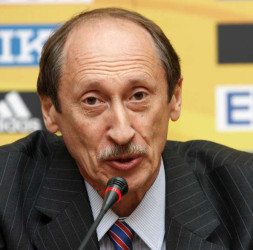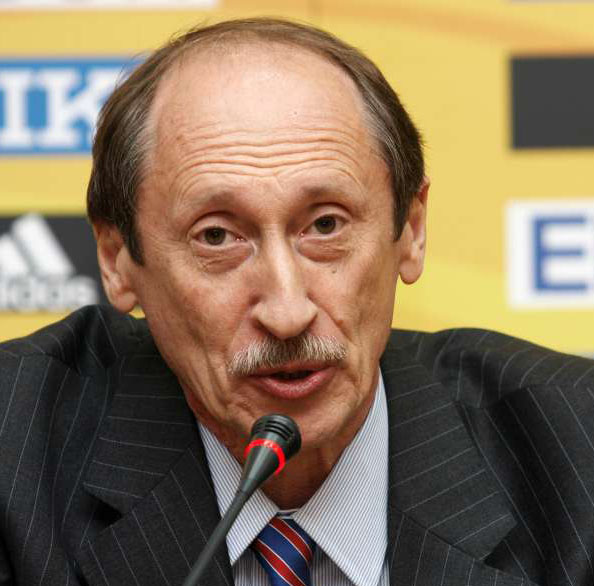LONDON, (Reuters) – Two top Russian athletics officials and the son of former world governing body President Lamine Diack were banned from the sport for life yesterday for covering up an elite Russian athlete’s positive dope test and blackmailing her over it.

The bans follow last year’s World Anti-Doping Agency (WADA) independent commission report that found a state-sponsored culture of doping in Russia and prompted Moscow’s suspension from the sport. The report shook world athletics and raised doubts over Russia’s participation in this year’s Olympics.
Valentin Balakhnichev, the former head of the Russian athletics federation, the country’s former head distance coach Aleksey Melnikov, and Papa Massata Diack, a former marketing consultant to the IAAF (International Association of Athletics Federations) were all handed life bans by the IAAF Ethics Commission.
The IAAF’s former doping chief Gabrielle Dolle was also banned for five years after all four men were found to have been involved in taking payment for covering up positive drugs tests or turning a blind eye to the activities.
The IAAF scandal, which officials accept could extend to other countries, coincides with a corruption scandal shaking world soccer governing body FIFA that has resulted in bans and arrests around the world.
Thursday’s sanctions were applied primarily regarding the case of Russian former London marathon winner Liliya Shobukhova, who paid $600,000 to have positive dope tests covered up. She was subsequently allowed to compete at the 2012 Olympics and the lucrative Chicago marathon but then gave evidence on the matter to WADA.
“The quality of the breaches determined as proven by the Panel need no hyperbolic exaggeration,” the report said.
“The head of a national federation, the senior coach of a major national team and a marketing consultant for the IAAF conspired together (and, it may yet be proven with others too) to conceal for more than three years anti-doping violations by an athlete at what appeared to be the pinnacle of her sport…their actions were the antithesis of what was appropriate.
It said they compounded their dishonesty by conspiring to extort “what were in substance bribes by acts of blackmail” and brought the sport of track and field into serious disrepute.
“The Panel considers in the light of its findings that VB (Balakhnichev), AM (Melnikov) and PMD (Diack) should be banned for life from any further involvement in any way in the sport of track and field.
“In GD’s (Dolle’s) case his sins were those of omission, not commission.” Balakhnichev and Diack were also fined 25,000 dollars and Melnikov 15,000.
Russia’s R-Sport agency reported that Balakhnichev described the ban as “politicised” and said that he intended to appeal; but the country’s sports minister Vitaly Mutko said there was no point in appealing as the ban “had been expected”.
The Monaco-based IAAF, reeling from a succession of doping and corruption scandals, welcomed the sanctions.
“The IAAF is angered to see that individuals have in the panel’s finding “conspired to extort what were in substance bribes from the athlete by acts of blackmail,” the sport’s governing body said in a statement.
“Ultimately, the Department was able to ensure that the athlete concerned received a lengthy ban, but the four individuals’ activities delayed that outcome. The IAAF has already introduced corrective measures to make sure this sort of interference can’t happen again.”
Sebastian Coe, who succeeded Lamine Diack – who is also under investigation by French authorities – as president last August, added: “The life bans announced could not send a stronger message that those who attempt to corrupt or subvert the sport of athletics will be brought to justice.

